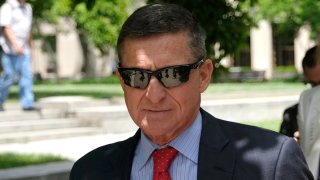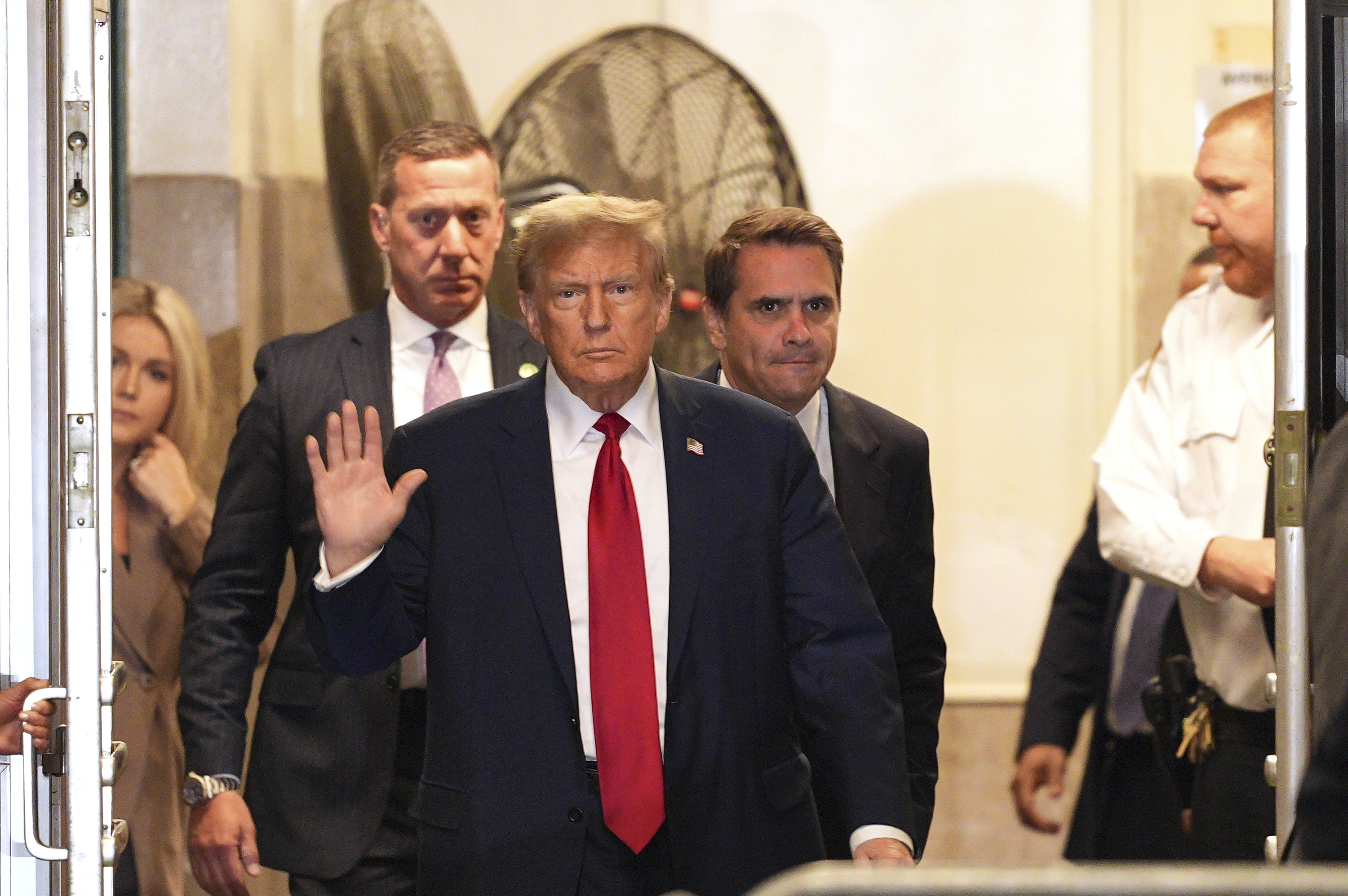
President Donald Trump's former national security adviser Michael Flynn deserves up to six months behind bars, the Justice Department said Tuesday, reversing its earlier position that he was entitled to avoid prison time because of his extensive cooperation with prosecutors.
The government's sentencing memo is a sharp rebuke to Flynn's new legal team, which for months has attacked special counsel Robert Mueller's Russia investigation and accused prosecutors of withholding information that the lawyers said was favorable to their client. A judge rejected those arguments last month.
Any prison sentence for Flynn would continue a precipitous fall for the former Army lieutenant general, who after a long career in Iraq and Afghanistan was entrusted with shaping the Trump administration's national security policy but became entangled early on in the FBI's investigation into ties between the Trump campaign and Russia.
The sentencing recommendation bookends Flynn's path from valued, high-level government cooperator — he is the only former White House aide charged in Mueller's investigation — to a defendant who prosecutors say no longer deserves any credit for helping the government.
"Indeed, the government has reason to believe, through representations by the defendant’s counsel, that the defendant has retreated from his acceptance of responsibility in this case regarding his lies to the FBI," prosecutors wrote in seeking a sentence of up to six months.
"For that reason," they added, "the government asks this Court to inquire of the defendant as to whether he maintains those apparent statements of innocence or whether he disavows them and fully accepts responsibility for his criminal conduct."
Sidney Powell, a lawyer for Flynn, did not immediately respond to an email seeking comment. Defense lawyers will submit their own filing later this month.
Politics
Flynn was to have been sentenced in December 2018 for lying to the FBI about his conversations with the then-Russian ambassador to the United States, including about his request that Russia not escalate tensions with the U.S. in response to sanctions imposed by the Obama administration for election interference.
But the hearing was abruptly postponed midway through it at Flynn's request after scathing criticism from U.S. District Judge Emmet Sullivan raised the prospect that he might send him to prison, even though prosecutors hadn't recommended it. Flynn, who led "Lock Her Up" chants directed at Hillary Clinton during the Republican National Convention, asked that the hearing be put off so that he could continue cooperating with prosecutors in hopes of avoiding any prison time.
The case has taken a tumultuous turn since then.
The Justice Department opted not to have Flynn testify in the Virginia trial of a former business associate, saying that shortly before trial, he changed his account and contradicted his own past statements — making him unreliable as a witness. The decision denied Flynn a chance to be credited for that cooperation.
He also fired his lawyers and replaced them with new ones who have taken a strikingly contentious stance toward Mueller's investigation, accusing FBI agents of effectively entrapping Flynn when they interviewed him at the White House and saying prosecutors had withheld documents and other information favorable to Flynn. Sullivan rejected each of the defense arguments in a lengthy opinion last month.
Flynn was seen as an important figure in the FBI's investigation into whether the Trump campaign coordinated with Russia. He was interviewed at the White House days after Trump was inaugurated and pressed about his conversations during the presidential transition period with then-Russian Ambassador Sergey Kislyak.
In their sentencing memo, prosecutors underscored the significance of that interaction.
"Any effort to undermine the recently imposed sanctions, which were enacted to punish the Russian government for interfering in the 2016 election, could have been evidence of links or coordination between the Trump Campaign and Russia," prosecutors wrote.
"Accordingly, determining the extent of the defendant’s actions, why the defendant took such actions, and at whose direction he took those actions, were critical to the FBI’s counterintelligence investigation," prosecutors wrote.
Flynn is one of a half-dozen Trump associates charged in the Mueller investigation, and at the time of his December 2017 guilty plea, he was the closest adviser to agree to cooperate with the probe. All six have either pleaded guilty or been found guilty in a jury trial.
Mueller found substantial contacts between Trump aides and Russia, but did not ultimately allege a criminal conspiracy to tip the 2016 election.
Sentencing is scheduled for Jan. 28.



